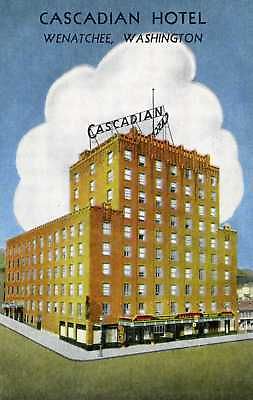 |
| Hotel where Parrish worked |
 |
| Elsie Parrish |
At the time President Franklin Roosevelt was trying to put into play his New Deal plan and he put a lot of judges into the Supreme Court that were in favor of Lochner v. New York. Lochner v. New York was a case that ruled that legally there could not be a maximum amount of working hours for bakers. Shortly after Roosevelt proposed a court reform bill to weaken the votes of the older, anti-New Deal justices. In the historical record however, it showed that Roberts (a justice) had voted in favor of Washington State's minimum wage just two days after oral arguments concluded, and that the court was divided, 4–4, at this time only because a pro-New Deal Justice Harlan Fiske Stone was absent due to an illness. The Court reversed the decision in the Washington State Court and ordered West Coast Hotel to pay Parrish's damages. The 5-4 decision resulted in the Supreme Court determining that minimum wage for women was constitutional. Negotiations between employers and employees often favored employers due to the economy, the Supreme Court felt that women were especially at a disadvantage. Roosevelt's announcement of his "court-packing scheme" came after the Supreme Court decision in West Coast Hotel v. Parrish. Because of this there is some controversy over whether or not related politics played a role in the unexpected change in vote by Justice Owen Josephus Roberts.
Sources:
https://en.wikipedia.org/wiki/West_Coast_Hotel_Co._v._Parrish
https://ballotpedia.org/West_Coast_Hotel_Co._v._Parrish
Sources:
https://en.wikipedia.org/wiki/West_Coast_Hotel_Co._v._Parrish
https://ballotpedia.org/West_Coast_Hotel_Co._v._Parrish
Great post, Belen! I liked how you clearly presented the causes, conflicts, and results of this court case. To add on to the court packing controversy, many historians argue that the only reason such narrative arose was because of the view many had of the courts being politically immersive. Commentators of the time believed that justices had switched their votes in order to "save the institution" and wrote a story that implied constitutional review was ideological in the sense that it reflected political ideals. These explanations fit into the psychological behavioral models of the time, and would continue to resonate for 60 years. However, as noted, there are problems with this model.
ReplyDeletehttps://www.yalelawjournal.org/forum/west-coast-hotels-place-in-american-constitutional-history